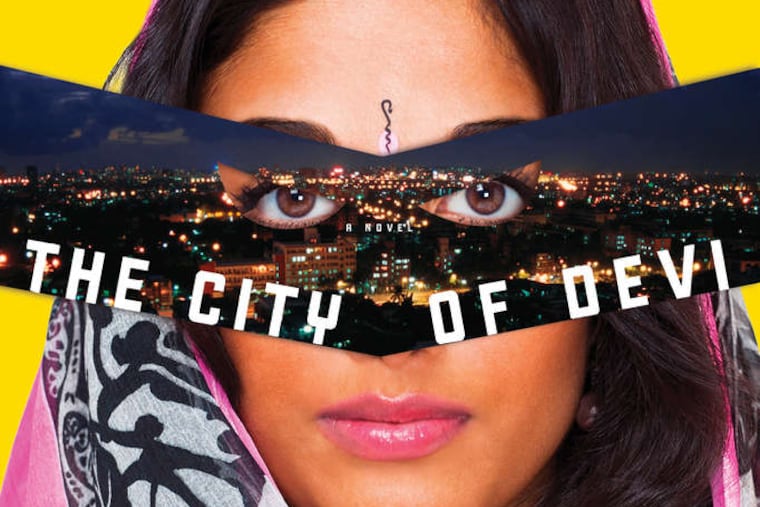War's chaos, murky relationships
There is nothing simple about India. The streets, the caste system, even wrapping a sari delicately requires specific razor-thin folds and a strategic pin. It's as if everything is so delicately balanced, one tiny stumble could spell disaster.

A Novel
Manil Suri
W.W. Norton. 400 pp. $26.95
nolead ends nolead begins
Reviewed by Dawn Fallik
There is nothing simple about India.
The streets, the caste system, even wrapping a sari delicately requires specific razor-thin folds and a strategic pin. It's as if everything is so delicately balanced, one tiny stumble could spell disaster.
Manil Suri walks that fine line in The City of Devi, mixing politics, religion, and pleasure in the most unexpected ways under a threatening cloud of nuclear war.
Even the premise of Suri's third novel is both possible and improbable. Sarita, a 33-year-old statistician, loves Karun, a physicist. But her relationship with Karun remains more friend than lover, marked by the star system she keeps to track their more memorable nights. It's a mostly empty sky.
Enter Jaz, Karun's Muslim lover and a general gay playboy in an unwelcoming country. Jaz knows about Sarita, but she can't quite place where he fits in Karun's life.
The fast-paced book starts with both Sarita and Jaz separately telling their relationship tales with Karun, one a slow, measured waltz, the second a lustful chase. They are both searching for their missing lover, first separately, then together, in that awful moment of waiting right before Mumbai explodes into war between India and Pakistan.
It's a time when any glimpse of hope takes hold, even the promise of a Bollywood movie figure come to life in the form of a child goddess who promises to save the city.
Suri, a math professor at the University of Maryland, wrote the bestseller The Death of Vishnu and The Age of Shiva, also set in Mumbai. His smooth writing doesn't shield the reader from any of the chaos of India at war or the jumble of relationships. The first section of the novel, Sarita's courting of Karun and her search for him among the rubble, focuses on the shambles of the city as she dashes from market to bomb shelter to train, trying not to see body parts and keep herself safe.
Suri is particularly good at dropping the reader into unfamiliar territory, whether it's the call of gay flirtation, the delicate dance between Hindu and Muslim politics, or a celebration of the patron goddess Devi ma.
"For a moment, I can only stare on. I've always assumed there is some sort of fraudulence to the Devi, but what if she's real, if this is the shimmer of divinity?" Sarita wonders in the face of the goddess. "When I look into her face, though, the illusion lifts - the gold, I realize, comes from a glaze of paint. Tiny creases around her brow and chin give the game away - the pigment is a mask through which the whites of her eyes float up luminously."
His sex scenes, particularly the ones between Jaz and Karun, are as descriptive as any bodice-ripper, supporting my theory that all engineers, computer techs and math majors have a not-so-secret wild side.
The big mystery is Karun, the physicist. He's kept at a distance from the reader and is keeping secrets from everyone. The main flaw in Suri's book is that this distance keeps the reader from understanding the love that both Sarita and Jaz (who annoyingly refers to himself in the third person) feel for Karun.
All three characters come together in a final, sometimes confusing jumble of war, love, sex, religion, and politics. It's easy to get lost in the additional characters; the Khaki guards and the Mughal domes and Mumbadevi amazon. Who?
But Suri manages to tie it all together and gives the reader a simple ending amid the chaos of The City of Devi.